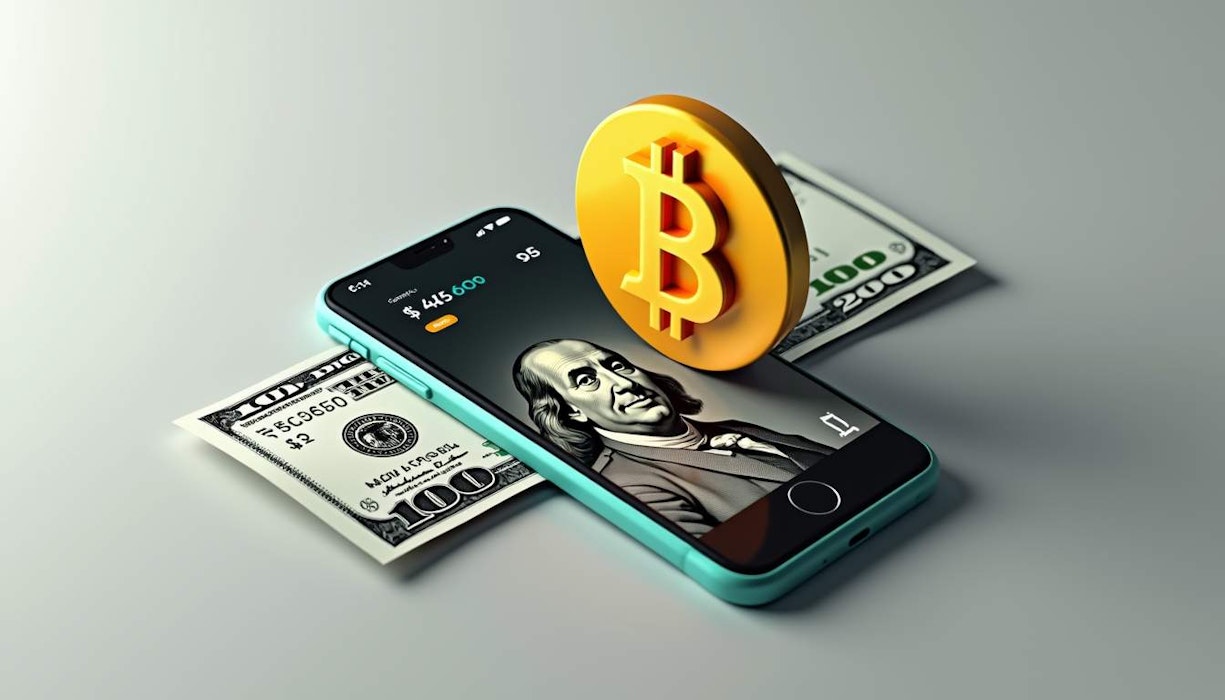Will We See Bitcoin Replacing the U.S. Dollar?
Could Bitcoin realistically take over the U.S. dollar's role as the global reserve currency by 2049? Recent developments have seen Bitcoin gain traction in global finance, especially among institutional and sovereign players. Countries in the BRICS alliance and specific U.S. states are incorporating Bitcoin into their strategies, but the fundamental question remains: Can Bitcoin actually replace the U.S. dollar?
What Does VanEck's Research Indicate?
VanEck's research offers some insights, estimating that if the U.S. were to acquire 1 million Bitcoins by 2029, this reserve could constitute approximately 35% of the national debt by 2049. However, such a scenario doesn't guarantee that Bitcoin would replace the U.S. dollar as a reserve currency. The dollar's entrenched status and the global financial systems' reliance on it make that problematic.
What Does Görkem Kanar's Research Suggest?
Görkem Kanar's thesis takes a more empirical approach, assessing Bitcoin's viability as a reserve currency. While he notes that Bitcoin's volatility poses challenges, he also states that this volatility tends to decrease over time. Nevertheless, he concludes that Bitcoin is not yet ready to supplant the U.S. dollar, primarily due to its speculative nature and volatility.
What Are Blueberry Markets' Findings?
Blueberry Markets offers a more balanced perspective, emphasizing that for a currency to serve as a reserve currency, it must be widely accepted and stable in value. Currently, Bitcoin's volatility and limited supply raise significant concerns. While it's gaining traction, it remains unlikely that Bitcoin will replace the U.S. dollar soon, given the latter's established power and systems.
How Does the Cato Institute View Things?
The Cato Institute discusses a Strategic Bitcoin Reserve proposal, suggesting that using Bitcoin to strengthen the dollar's position rather than replace it is a surging idea. However, this viewpoint does not directly support the notion that Bitcoin can replace the dollar. Various proposals advocate national Bitcoin reserves, but none suggest this would lead to the dollar's replacement.
Will Bitcoin Offset U.S. Debt?
How volatile is Bitcoin? One important factor is Bitcoin's extreme price volatility, which makes it a risky asset for managing national debt. Even in a highly optimistic outlook, its total market cap would not be enough to significantly offset the national debt. The U.S. national debt is projected to be around $35 trillion, while Bitcoin's market cap, even at peak prices, is far smaller.
Can Governments Control Bitcoin?
The decentralized nature of Bitcoin complicates government control and monetary policy. Relying on it to manage national debt is problematic because the volatility does not guarantee stable asset value.
Is Bitcoin's Future Guaranteed?
The future of cryptocurrency is uncertain. There's no guarantee that Bitcoin will retain its value in the long run. Central banks may introduce their own digital currencies, further complicating its prospects.
Are There Economic Complexities?
Lastly, the perspective that Bitcoin could offset national debt oversimplifies economic realities. Much of the national debt arises from structural issues such as entitlement programs and budget deficits, which cannot be resolved through cryptocurrencies alone.
How Will Bitcoin's Volatility Affect Its Future?
Bitcoin's price is highly volatile, with fluctuations that could undermine its reliability as a reserve currency. Its unpredictability challenges central banks' use of Bitcoin as a stable asset.
Can Bitcoin Offer Stability?
Its volatility often exacerbates risk rather than mitigates it. For instance, in economic downturns like the COVID-19 pandemic, Bitcoin suffered severe price drops, potentially destabilizing countries reliant on it for reserves.
Are Stabilization Mechanisms Necessary?
If Bitcoin is to play a larger role as a reserve asset, mechanisms must exist to stabilize its price or curb speculation. This could involve increased integration with traditional finance or the creation of Bitcoin-backed financial instruments.
Will Global Regulations Help?
A unified global regulatory framework and a more mature market would also aid in managing Bitcoin's volatility.
What Alternatives to Bitcoin Exist?
Central Bank Digital Currencies (CBDCs) could serve as alternatives, being worked on by various countries. These digital forms of fiat currencies could help reduce reliance on traditional reserve currencies like the dollar.
What Role Could Stablecoins Play?
Stablecoins like Tether and USD Coin are pegged to the dollar's value. While not as direct as CBDCs, they offer a stable digital option to volatile cryptocurrencies.
What About Interoperable CBDCs?
The idea of interoperable CBDCs potentially allows multiple national currencies to coexist without a single dominant reserve currency.
In Conclusion
While Bitcoin is gaining traction, the consensus is that it won't replace the U.S. dollar as a global reserve currency by 2049. Its current volatility, limited supply, and the dollar's entrenched status pose significant challenges. Alternative digital currencies, particularly CBDCs and stablecoins, could play a role, but the landscape of digital currencies in global finance remains dynamic and complex.
